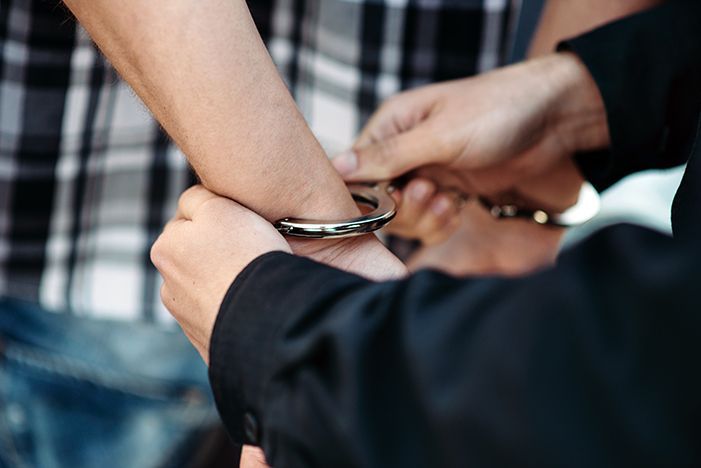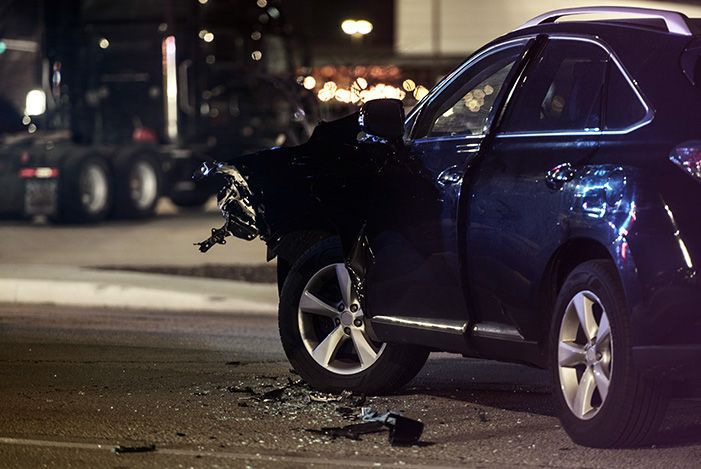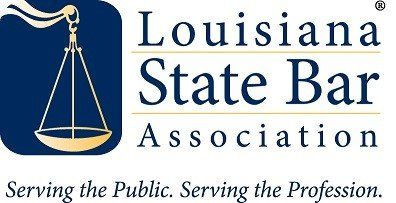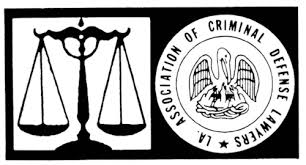Does Louisiana Have a Stand Your Ground Law?

In the United States, the concept of "Stand Your Ground" law has been a topic of intense debate and scrutiny. These laws, which vary from state to state, generally allow individuals to use force, including deadly force, to defend themselves without the duty to retreat when faced with a threat of a forcible felony involving danger.
In this article, we'll explore Louisiana's stance on Stand Your Ground law and what it means for the state's residents. We will also discuss the legal implications and considerations surrounding this controversial topic, including when it is legally allowed to use force in self-defense and claim self-defense.
Louisiana's Self-Defense Laws
Louisiana, like many other states, has laws that protect an individual's right to self-defense. The state's self-defense laws are outlined in Louisiana Revised Statutes 14:19 and 14:20. These statutes provide the legal framework for when and how force, including deadly force, can be used in self-defense to prevent a violent or forcible felony.
Louisiana Revised Statute 14:19 states that the use of force or violence is justifiable when committed to prevent a forcible offense against the person or an unlawful and forcible entry against property in a person's lawful possession, provided that the violence used is reasonable and apparently necessary to stop the unlawful action.
Louisiana Revised Statute 14:20 further elaborates on the justifiable use of deadly force. It states that a justifiable homicide is committed in self-defense by one who has a reasonable belief that he or she is in imminent danger of losing his or her life or receiving great bodily harm and that the killing is necessary to save himself or herself from that danger. The person using force must have a reasonable fear of imminent injury or serious danger to justify the use of lethal force for justifiable homicide.
The use of force in self-defense is not justified if the person is engaged in unlawful activity, such as a drug deal or other illegal acts. Additionally, if you have reasonable fear, or reasonable belief, the force used must be proportional to the perceived threat. Meeting force with excessive force may negate a self-defense claim.
The Castle Doctrine
Louisiana's self-defense laws include a provision known as the "Castle Doctrine." This doctrine, derived from the common law principle that "a man's home is his castle," provides additional protections for individuals who use force to defend themselves in their own home, place of business, or motor vehicle.
Under Louisiana's Castle Doctrine, there is a presumption that a person using deadly force within their own home, place of business, or motor vehicle does so with a reasonable belief and in self-defense. This presumption applies when the person using force reasonably believes that the unlawful entry or intruder intends to commit a forcible felony involving life.
However, this presumption does not apply if the person using force is engaged in illegal activity, such as a controlled dangerous substance transaction, or if the intruder has a right to be in the dwelling place of business or motor vehicle (such as a resident or guest).
The Castle Doctrine extends the right to stand your ground and use force without retreating, even if a safe retreat is possible when faced with an unlawful intruder in one's home, place of business, or motor vehicle. This means that you don't have to try to escape the situation by leaving through another door or exit before resorting to using force to protect yourself, even if it's possible to safely do so.
Stand Your Ground in Louisiana
While Louisiana's self-defense laws provide strong protections for individuals who use force to defend themselves, the state does not have a specific "Stand Your Ground" law. In Louisiana, Stand Your Ground laws generally remove the duty to retreat before using force in self-defense, even if a safe retreat is possible when faced with the threat of a forcible felony.
However, Louisiana's self-defense laws, particularly the Castle Doctrine, embody the principles of Stand Your Ground defense. In Louisiana, individuals have the right to stand their ground and use force, including deadly force, to protect themselves or others from imminent danger or great bodily harm, without the duty to retreat. This applies not only in their homes but also in their place of business or motor vehicle.
It is important to note that even with Louisiana's Stand Your Ground provisions, the use of force in self-defense must still be due to reasonable belief and proportional to the perceived threat. The mere presence of a Stand Your Ground law does not give individuals a blanket right to use force without consequence. Factors such as the presence of a weapon, verbal threats, and the ability to retreat safely will be considered in determining the reasonableness of a self-defense claim.
Legal Considerations and Implications
The application of self-defense laws, including Stand Your Ground and the Castle Doctrine, can have significant legal implications. In Louisiana, as in other states, the use of force in self-defense is an affirmative defense. This means that if an individual is charged with a crime related to their use of force, they bear the burden of proving that their actions were justified under the state's self-defense laws and that they had a reasonable fear of imminent danger or great bodily harm.
The determination of whether an individual's use of force was reasonable and justified is often a complex and fact-specific inquiry that depends on a number of factors. Factors such as the severity of the perceived threat, the presence of a deadly weapon, verbal threat, the individual's ability to retreat safely, and the proportionality of the force used will all be considered in a self-defense claim.
It is also worth noting that Louisiana's self-defense laws apply not only to criminal charges but also to civil liability. An individual who uses force in self-defense may still face civil lawsuits from the person they used force against or their family members. In these cases, the same legal standards for justifiable use of force will apply.
If you find yourself in a situation where you have used force in self-defense, it is in your best interest to seek the advice of experienced criminal defense attorney Lance Robinson who can guide you through the legal process, help protect your legal rights, and ensure your best interests are represented, as you may face potential criminal charges.
Criticisms and Controversies
Stand Your Ground laws and the Castle Doctrine have been the subject of much criticism and controversy. Proponents argue that these laws protect the fundamental right to self-defense and deter criminal activity. They maintain that individuals should not be required to retreat in the face of a forcible felony and should have the right to defend themselves and their property.
However, critics argue that Stand Your Ground laws can lead to an escalation of violence and may encourage vigilantism. They contend that these laws disproportionately affect minority communities and can be used to justify racially motivated violence. Critics also point to cases where Stand Your Ground laws have been invoked in questionable circumstances, leading to controversial acquittals or decisions not to prosecute.
The debate surrounding Stand Your Ground laws and the Castle Doctrine is ongoing, and states continue to grapple with balancing the right to self-defense with concerns about public safety and the potential for abuse.
Conclusion
Louisiana's self-defense laws, including the Castle Doctrine and Stand Your Ground provisions, provide strong protections for individuals who use force, including deadly force, to defend themselves against the threat of a forcible felony, particularly in their own homes, place of business, or motor vehicle. Louisiana's Stand Your Ground law removes the duty to retreat before using force in self-defense when faced with imminent danger or the threat of great bodily harm.
The application of self-defense laws can have significant legal implications, both in criminal and civil contexts. The determination of whether an individual's use of force was reasonable and justified is a complex and fact-specific inquiry that depends on several factors and the circumstances of each case.
As the debate surrounding Stand Your Ground laws and the Castle Doctrine continues, it is essential for individuals to understand their state's self-defense laws and the potential consequences of using force. If you find yourself in a situation where you have used force in self-defense, it is crucial to seek the advice of an experienced criminal defense attorney who can guide you through the legal process, help protect your legal rights, and ensure your best interests are represented, as you may face potential criminal charges.
If you have any questions about Louisiana's self-defense laws, need legal assistance, or would like a free consultation, please contact New Orleans Attorney Lance J. Robinson. With his extensive knowledge of Louisiana law and the laws surrounding self-defense, he can provide the guidance and representation necessary to navigate this complex legal area.
Stand Your Ground Law FAQs
What is the difference between "Stand Your Ground" and the "Castle Doctrine" in Louisiana?
While Louisiana does not have a specific "Stand Your Ground" law, the state's self-defense laws, particularly the Castle Doctrine, embody similar principles. The Castle Doctrine allows individuals to use force, including deadly force, to defend themselves against an unlawful intruder in their home, place of business, or motor vehicle without the duty to retreat.
In contrast, "Stand Your Ground" laws generally apply to situations outside the home, removing the duty to retreat before using force in self-defense when faced with a forcible felony involving danger.
Can I use deadly force against someone forcibly entering my home in Louisiana?
Under Louisiana's Castle Doctrine, you may use deadly force against an unlawful intruder if you reasonably believe that the intruder intends to commit a forcible felony involving life or great bodily harm. However, this presumption does not apply if you are engaged in illegal activity, such as a drug deal, or if the person forcibly entering your home has a right to be there (e.g., a resident or guest).
What factors are considered when claiming self-defense in Louisiana?
When claiming self-defense in Louisiana, several factors are considered to determine if the use of force was reasonable and justified. These factors include the severity of the perceived threat, the presence of a deadly weapon, verbal threats, the ability to retreat safely, and the proportionality of the force used to meet the unlawful force. An experienced criminal defense attorney such as Lance J. Robinson can help assess your specific situation and build a strong self-defense claim.
Can I stand my ground and use force if I am unlawfully detained by police officers in Louisiana?
No, Louisiana self-defense laws do not justify the use of force against police officers who are acting in the course of their duties, even if you believe you are being unlawfully detained. Resisting arrest or using force against law enforcement is a separate crime and does not fall under the protection of self-defense laws.















